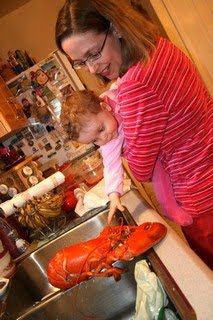Some we have answers for, some we have hints, some we, like you, will have to wait and see where God takes us. In this,
In Steve's final sermon to the Parish of Arborfield and Hudson Bay, he addresses these questions.
Who's a Wheel of Fortune fan? It's
TV game show where contestants spin a money-wheel and guess the
letters in a puzzle, a word or phrase. If the letter is present, they
earn some money; if not, the next contestant goes.
Players can only guess consonants;
they have to buy vowels, out of their earnings. The 5 vowels,
A-E-I-O-U, are important clues to solve the puzzles.
Sometimes God's calling for our
lives feels like a Wheel of Fortune puzzle. We all have a general
call; Jesus invites each of us to “Come, follow me.” Several
times in the Gospels (Matthew 4:19; John1:39,43) Jesus explicitly invited
people to come, follow him, learn the ways of Christ. So, too, he
calls us to follow.
God also calls us in specific ways,
to do specific things, to be specific people. Those divine callings
can be trickier to figure out.
The language of “Calling” is
often applied to “ministry professionals,” ministers,
missionaries and other so-called “full-time Christian workers.” I
grew up thinking that to be serious about my faith, I had to be a
minister or missioary. No one ever said so, but it's the vibe I
picked up.
Then Julie and I learned in our 20s that God
being Lord of all means that the division between the sacred and the
secular is largely of human making. If we're serious about our faith,
following Christ, loving God and neighbour, then everything we are,
everything we do, everything we have are part of God's mission and
ministry. We're all “full-time Christian workers.”
Because of this, Julie and I have
often said, “you are called,” or talked about “your calling,”
because we believe Calling applies to all of us.
But answering the question, “what
is God's calling for me?” can be challenging. And the answer can
change over time, too. I might rephrase it to, “what is God's call
for me today?”
To help solve the puzzle of God's
calling in your life, let me give you the vowels this morning.
A – Abilities: God has blessed
each of us with skills and talents, strengths and weaknesses. One may
have the gift of listening. Another is very articulate. One is a
quiet leader. Another plays beautiful music. One is good with
numbers. Another is physically strong. God wants us to fulfill those
God-given gifts, those Abilities, by playing our part in his grand
mission in the world.
E – Experiences: Our calling in
God's grand mission depends on more than just what we are good at.
Our past experiences also shape God's call on our present and future.
A past job may give you the wisdom to lead your family, town or
church in an important way. A tough experience, like unemployment,
pain or abuse, may have prepared you to answer God's call to help
someone facing tough times today. God's call draws on our Abilities
and our Experiences.
I – Interests: By now you've
noticed that Julie is very good at a lot of things. Years ago, one
teacher pressured her to specialize in her own field, since Julie was
so good at it. Julie resisted that pressure, because while she had
the Ability, she lacked the Interest. God's call uses our Abilities
and Experiences, and also considers our passions. Our likes and
dislikes. Yes, there are times we have to do things we don't like;
that's life. Jesus wasn't too fond of the cross, but he knew it had
to be. But our Interests, our passions, are often a big clue in
answering the question of our calling.
O – Opportunities: What God calls
us to, today or for the rest of our lives, depends on the
opportunities we have. These are the open or unlocked doors that God
has placed around us. Opportunities to help a neighbour in need;
teach a course; take a mission trip; or maybe move to Saskatchewan. Eph 2:10
says that God works ahead of time, preparing good works for us to do.
Opportunities that are lined up by God, as ways for us to respond to
his call and participate in his mission.
U – Unexpected Twists: The Holy
Spirit keeps a wild card in the deck of our lives. God reserves the
right to do something surprising in us and in our lives, and to call
us in a completely unexpected direction or with spiritual gifts and
abilities we didn't know we had. Think of the Day of Pentecost in
Acts 2, when some fearful followers of Christ unexpectedly found
themselves proclaiming the Gospel boldly and in different languages.
God's calling for our lives draws
upon our Abilities and Interests, our Experiences and Opportunities,
and may take Unexpected Twists, through the grace of God and the
power of the Holy Spirit.
Let me now apply these 5 factors to
Julie and me, as we respond to God's call for our present and future.
This is our last Sunday with you. We leave soon for Toronto. I will
work for a computer company by day. Julie may study or teach. We will
keep discerning what ministry opportunities God has for us.
That's our near-future. But our
story starts in the past.
Let's go way back to 1993. A young
couple, both with more hair than today (hers was longer, mine
thicker), as their undergraduate degrees neared completion, this couple wondered
about God's call on their lives.
To explore possibilities, we
attended the Urbana Missions Conference, a week-long series of
workshops and worship times. The conference specializes in pairing
missions agencies around the world with prospective people, like us.
We were most interested in international mission options.
A few agencies insist that their workers
raise their own funding. Some are ok with that; my brother and
his wife raised their own support for the years that they worked
in Ukraine and the Caribbean.
But that's not my style; I'm not
comfortable raising my support like that.
I know some in our parish have been
disappointed that Julie and I have had so little involvement with
the fund-raisers. But I'm already very uncomfortable that our stipend is the
largest expense in the parish budget. The sales and lunches feel like
raising our own support, exactly what turned me off those missions
groups.
Bu at Urbana we encountered the
mission model called Tent-Making. It comes from Acts 18:1-4. Paul is
in Corinth, spreading the Gospel. No church is paying him, as the
church does not yet exist there. So Paul supports his mission work
through his trade of making tents.
We loved that model. Not raising
money; not having others fund-raise because we cost so much. Rather,
it's doing good, valuable, productive work in the secular workplace,
using our abilities, experiences and interests. And out of that work
supporting ourselves in our opportunities for God's mission, be that
teaching, evangelism, pastoral care, justice-work, etc.
To prepare ourselves to be
Tentmakers, we did more studies. I did a Master's degree in computers
at UBC; we both did Theology degrees at Regent College. We hoped to
use our computer and business skills to engage in a Tent-Making
ministry, possibly in Eastern Europe or Asia.
But by 1999, our international
opportunities fell through. We moved to Saint John, New Brunswick,
and entered the secular workplace. In moving to town, God used our
interests in urban living and regional history to draw us to a poor
neighbourhood. We plugged into the local Anglican church and the work
it was doing with the poor and the youth in that neighbourhood.
We saw there the depth of human
need. People desperately needed dignity, financial aid and
opportunity. And they needed to have their hearts and lives touched,
changed, by God. We met, for just one example, a teenager who slept
with a knife under her pillow because she was afraid of her mom's
boyfriend. That neighbourhood was full of the messiness of human life
and need.
We honed our abilities and gained
experience in teaching the Bible, in guiding discussions, helping
people connect their Sunday faith with their Monday lives. We fell in
love with helping to grow and strengthen the faith of God's people,
within the local church.
Eventually, God's call for us
changed, drawing us from that setting into seminary, preparing for
ordained ministry.
We've told the story many times, how
our house sold on the very day we left Saint John for school in
Toronto. Or how, through a series of closed and open doors,
rejections and unexpected twists, God called us to Saskatchewan.
Through your influence, God has
grown us in many new ways. We have greater clarity and confidence in
what we do well. We have learned that, with the help of God - and
you! - we can do things even when we don't feel capable, when we
don't have the ability, experience, or interest.
Recently, we sensed God's call
changing again. Choices and sacrifices we once happily made needed
reevaluation with the addition of Anastasia to our lives.
But that call once again looked like
a blank Wheel of Fortune puzzle. Would we share another priest
position in a church? Was God calling one or both of us to be a
Rector, or an Assistant? Were some of our old missions-agency
contacts relevant? Our direction was not clear.
We prayed. We talked with each
other. With Bishop Michael. With other priests, friends and contacts
across the country. We talked with charities and agencies. We
wondered about secular work.
Around Victoria Day, out of the
blue, a computer company called me. They had my résumé in their
system from a while back, and wanted to talk about an international
opportunity. I told them, 'no.' They contacted me the next week: 'are
you sure?'
It was outside the box of how we'd
been thinking. But as we thought and talked and prayed, the old
Tent-Making idea returned: funding our ministry through so-called
secular work.
By August, enough of the puzzle was
filled in that our direction was clear: not international computer
work, but also not parish ministry, in the usual sense. But computer
work - and more! - in Toronto.
Of course, not all the details are
clear, but that's part of walking by faith, not by sight (2 Cor 5:7).
I will work for a small software company with a great culture
and super flexibility. We have dates with some Anglican churches in
Toronto, to talk about possibilities once there.
A PhD or further studies may also be
in Julie's future. She's had the interest since the 1990s, and has
discovered a gift and passion for teaching through her ordained
ministry here.
There are unknowns, unanswered
questions. But we've been in uncertain times before. God's plan for
our life is like a road map, but God does not unfold it all at once.
We see just the small unfolded section we're in now. As we draw near
the edge of the map, it's natural to worry about what's beyond the
map-fold. But when we get right to the edge, our faithful God unfolds
the next section and calls us onward.
Julie, Anastasia and I have seen
some of what's over the edge of our map, and know that God will
reveal more in time.
This church and this parish are also
reaching the edge of your map. You may be anxious about what God has
in store for you next. I encourage you to hold together, to one
another and to God. Trust and follow God. Examine your vowels, your
Abilities, Experiences, Interests, Opportunities and Unexpected
Twists. Finishing the puzzle of God's call for you, this church and
this parish will take effort. And unlike Wheel of Fortune, the prize
won't be 'big money!' But being in God's will, with your brothers
and sisters in Christ, is worth the effort.
We have been pleased to serve with
you. To be helped by and shaped by and to learn from you. Hopefully, we have
been able to help and shape you, too, in your journeys of faith.
Our prayer is that you will hold
tightly to God, with your whole heart, mind and strength. And that
the days ahead will show you God, at work in your strengths and
weaknesses, drawing you ever closer into a community of faithful
followers of our Lord Jesus Christ.
Amen.














